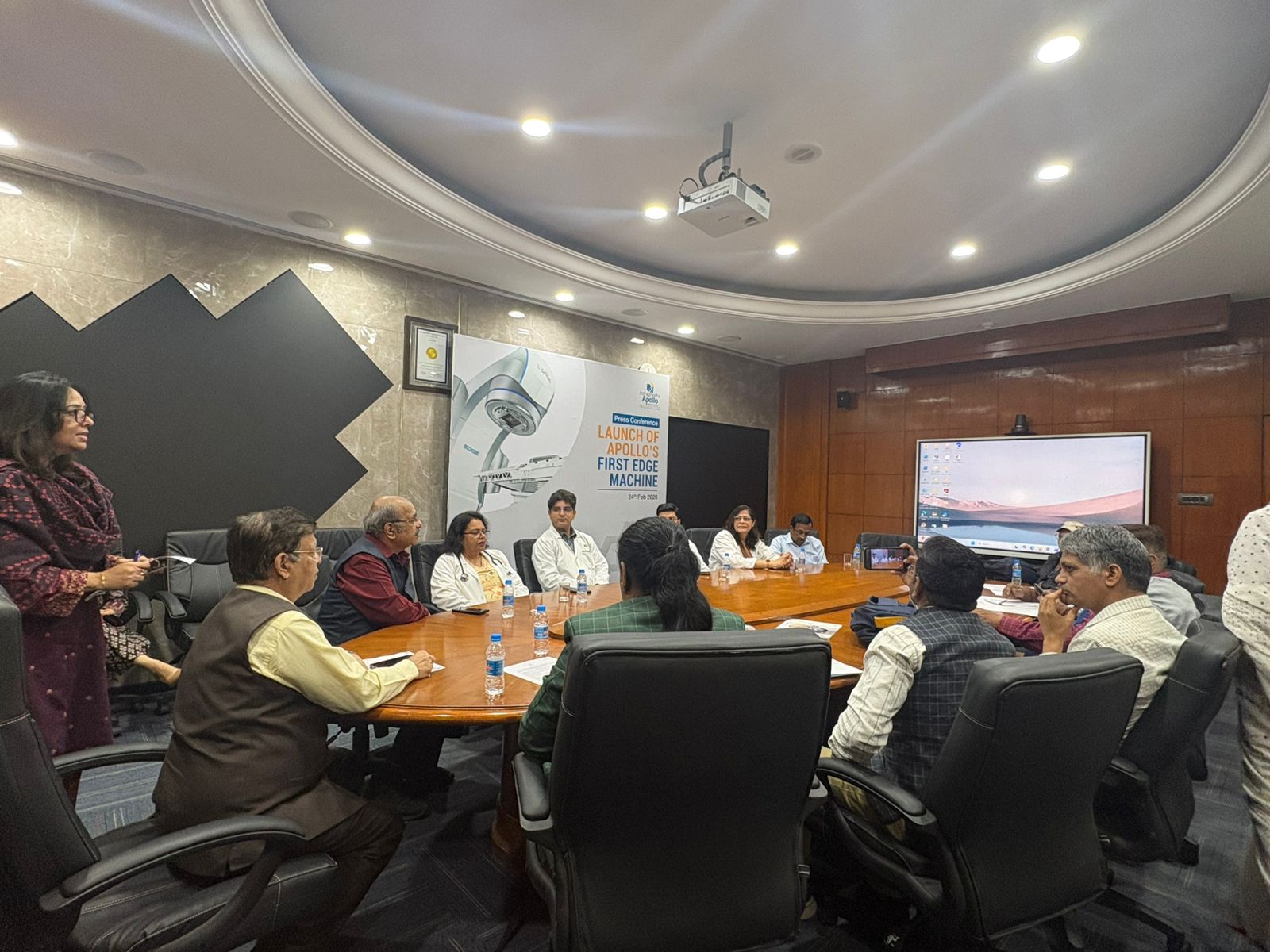The national-level engineering entrance exam, JEE Main 2026, is just around the corner. Whether you’re a student who is revising full-throttle or someone who feels you still have a lot to catch up, a period of two months (60 days) of focused, systematic preparation can make a dramatic difference. With the right strategy, you can sharpen your fundamentals, cover the high-yield portions of the syllabus, build endurance for full-length mocks, and fine-tune your exam-day approach.
In this article, we will walk you through:
Why 60 days is still enough if used effectively
Key preparation principles (syllabus, pattern, resources)
A detailed day-by-day (and week-by-week) 60-day timetable
Subject-wise tactics (Physics, Chemistry, Mathematics)
Revision, mock test strategy, error-analysis, and final-week fine-tuning
Mindset, wellbeing and exam-day tips
Frequently-asked questions (FAQs)
By the end, you’ll have a ready-to-go blueprint to follow. Let’s dive in.
Table of Contents
Part 1: Why 60 Days Can Work (If You Use Them Right)
1.1 Realistic but intensive
Most preparation guides assume 6-12 months of study. But if you already have a base (say you’ve covered class 11/12 fairly well) or you’re willing to commit high hours daily, 60 days can yield strong results. The key: quality + structure + consistency.
1.2 Focus on high-yield topics & smart revision
The exam syllabus for JEE Main 2026 is based on the NCERT class 11 & 12 curriculum for Physics, Chemistry and Mathematics. In 60 days you must prioritise topics with higher weightage and avoid spending time on very low-yield areas if your time is constrained.
1.3 Mock tests and error-analysis are the game-changers
Merely reading textbooks does not guarantee success. According to preparation guides, regular mock tests, previous-year paper practice and systematic error correction are essential. In the last 60 days you must ramp up these.
1.4 Exam-timing & pattern are stable
Since the pattern is known (three subjects, each ~100 marks for Paper 1) and the syllabus largely similar to previous years, you can plan backwards from exam day. So using a fixed 60-day block is doable.
Part 2: Preparation Groundwork
Before you launch into the JEE Main 2026 60-day timetable, invest a day or two to get your foundation right.
2.1 Understand the syllabus & exam pattern
The JEE Main 2026 syllabus covers topics from class 11 & 12 for Physics, Chemistry, Maths.
You must download the detailed PDF (from the official website or trusted sources) and mark topics you are weak in.
Know the exam pattern: number of questions, marks, negative marking etc. (Typically +4 for correct, −1 for wrong for most MCQs)
2.2 Assemble your resources
NCERT textbooks – must read, especially for Chemistry and basics in Physics & Maths.
Standard books/reference material – choose one good book per subject and stick to it.
Collection of previous year papers and full-length mock tests.
2.3 Create a staging environment
Design your study space: quiet, minimal distraction, good lighting.
Arrange a timetable sheet (physical or digital) where you’ll mark goals each day.
2.4 Set measurable goals
Break down your 60 days into manageable chunks (say: Weeks 1-4, Weeks 5-8). For each subject, set goals: e.g., finish X chapters in week 1, answer Y questions in week 2, take Z mock tests in week 3.
2.5 Track your strengths & weaknesses
Do a baseline test (for example a previous year full paper) to identify your weak topics. Maintain a “weak-area log” and revisit these topics at regular intervals.
Part 3: The 60-Day Study Plan – Week-by-Week & Day-by-Day
Below is a detailed plan. Assume you study 6 days per week and reserve one day for rest/reflection each week. You’ll adjust times based on your daily capacity (6-10 hrs ideally; more if possible).
Phase 1: Days 1-14 (Weeks 1–2) – Building Foundation
Objective: Strengthen fundamentals, cover easier chapters, begin revision of core topics.
Day 1–2: Syllabus review, baseline full paper, identify weak chapters and topics.
Day 3–7: Physics: Mechanics (class 11 topics) + Maths: Algebra (sets, relations, functions, complex numbers) + Chemistry: Physical Chemistry basics (mole concept, stoichiometry).
Day 8–14: Physics: Waves, Thermodynamics + Maths: Coordinate Geometry (2D) + Chemistry: Inorganic chemistry (Periodic table, chemical bonding).
Each day: ~3 hrs subject A + ~2 hrs subject B + ~1 hr subject C + ~30 mins revision of previously done.
Weekly mock/test day (Day 7 & 14): Take a 2-hr timed sectional test (one subject) + review.
Phase 2: Days 15-30 (Weeks 3–4) – Intensive Coverage
Objective: Cover major chapters across all subjects, begin timed practice.
Week 3:
Physics: Electricity & Magnetism + Maths: Calculus (limits, continuity, differentiation)
Chemistry: Organic Chemistry basics (hydrocarbons)
Daily: 4 hrs core + 1 hr revision + 1 hr problem-solving.
Week 4:
Physics: Optics + Modern Physics + Maths: Calculus continued (integration, differential eqns)
Chemistry: Physical Chemistry advanced (chemical kinetics, equilibrium)
At end of day 28 & day 30: Full–length mock test (3 hrs) under exam conditions, followed by detailed error analysis.
Phase 3: Days 31-45 (Weeks 5–6) – Practice & Problem-Solving
Objective: Transition from learning to huge volume of problem-solving, past papers, timed practice.
Week 5:
Maths: Coordinate geometry (3D) + Vectors + Probability & Statistics
Physics: Modern Physics continued + Thermodynamics advanced
Chemistry: Inorganic (p-block, d-block) + Organic (reaction mechanisms)
Daily: ~3 hrs problem-solving in one subject + ~2 hrs core new topic + ~1 hr revision + ~1 hr question bank.
Week 6:
Continue deep problem practice: Maths: Differential eqns + Integral calculus applications
Physics: EM waves, Optics problem-set
Chemistry: Organic (biomolecules, polymers) + revision of earlier inorganics
On day 38 & day 45: 2 full length mocks (3 hrs each) plus error log.
Phase 4: Days 46-60 (Weeks 7–8 + Final Days) – Revision, Mock Tests & Fine-Tuning
Objective: Consolidate all topics, focus on weak chapters, take regular full mocks, simulate exam conditions, build speed + accuracy.
Days 46-50 (Week 7):
Fast revision of all Physics chapters, with high-yield topics (e.g., mechanics, electrostatics, waves).
Maths: Revision and solving previous year high-difficulty problems.
Chemistry: Quick run-through Organic & Inorganic key reaction schemes + Physical Chemistry numericals.
At end of Day 50: Full mock test + thorough review.
Days 51-55:
Mixed subject timed sets: e.g., 75 questions in 90 mins from mixed subjects.
Error log heavy focus: revisit topics where errors are frequent.
Sleep, nutrition, mental conditioning become important.
Days 56-60 (Final 5 days):
Day 56: Full mock (3 hrs), followed by rest and light revision.
Day 57: Solve one previous year paper under timed conditions; identify final weak spots.
Day 58: Quick revision of formulas, error log recap, flashcards.
Day 59: Very light day: go over formulas, mental readiness, early sleep.
Day 60 (Day before exam or morning of exam): Relax, revision of most important formulas, no new topic. Ensure you reach the centre early, keep calm.
Sample Daily Time-Table (Adapt based on your hours)
06:00-07:30 → Subject 1 (new topic)
07:30-08:00 → Short break + light snack
08:00-10:00 → Subject 2 (problem solving)
10:00-10:30 → Break
10:30-12:00 → Subject 3 (new topic)
12:00-12:30 → Revision of previous day + flashcards
12:30-13:30 → Lunch + rest
13:30-15:30 → Dedicated problem-set (mixed topics)
15:30-16:00 → Short break / walk
16:00-17:30 → Revision session (weak topics)
17:30-18:00 → Break
18:00-19:30 → Mock test / timed practice (on designated days)
19:30-20:00 → Review of mock/test + error log
20:00-21:00 → Dinner + unwind
21:00-22:00 → Light revision (flashcards, formulas)
22:30 → Sleep
You may adjust based on your energy levels, coaching schedule, school commitments etc.
Part 4: Subject-Wise Strategy
4.1 Physics
Focus on conceptual clarity: Many toppers emphasise that rote learning doesn’t work for Physics in JEE Main.
High-weightage topics you must prioritise include – Mechanics, Electricity & Magnetism (EM), Waves & Optics, Modern Physics.
Use NCERT first, then move to a good problem-book (for example HC Verma).
Daily: After studying a concept, solve 10-15 assorted numerical problems.
Maintain an “error log” for problems you got wrong: note down the reason (concept lapse, calculation, careless error) and revisit weekly.
In last 2 weeks: Solve full Physics section of previous year papers, aim for speed + accuracy.
4.2 Chemistry
Chemistry is your scoring section: with regular practice you can maximize output. Many expert guides emphasise NCERT as backbone for Chemistry.
Break it into three sub‐areas: Physical, Inorganic, Organic.
Physical: numerical heavy – practice problem sets every alternate day.
Inorganic: memory + understanding of periodic trends, reactions; flashcards help.
Organic: reaction mechanisms, named reactions – be clear and practise typical problems.
Use a separate notes book for reaction mechanisms/schemes.
In final revision phase: Use quick revision charts for reaction lists, important numerical formulas, high-yield inorganics.
4.3 Mathematics
Maths demands both speed and accuracy. A focused problem-solving regimen is essential.
High-yield topics: Algebra (complex numbers, sequences & series), Calculus (differentiation, integration, differential equations), Coordinate Geometry (2D & 3D), Vectors.
For each topic:
Revision of theory + formula sheet
Solve moderate problems (10-20)
Solve higher difficulty problems (5-10)
Time-bound questions (timed sets) in last phase
Error log is equally crucial: for each mistake note whether it was concept, formula, algebraic manipulation, or careless.
Part 5: Revision, Mock Tests & Error Analysis
5.1 Revision strategy for JEE Main 2026
Use spaced-revise technique: After you first study a topic, revise it after 1 day, 4 days, 10 days, and in final week 2-3 times. This helps long-term retention.
Maintain a “revision calendar” – allocate at least one hour each day for revision of older topics (from previous 30+ days) especially in last month.
Use “flashcards” or summary sheets for formulas, important reactions, quick reference.
5.2 Mock tests & full-length practice
Full-length tests simulate the pressure, time-management and stamina required for actual exam. According to multiple guides, doing tests is non-negotiable.
In the 60-day plan:
Weeks 1-2: 1 sectional test per week
Weeks 3-4: 1 full paper every 4-5 days
Weeks 5-6: 2 full papers per week
Last 10 days: Daily mock / timed set if possible
After each mock: Spend at least half the time analysing errors. What went wrong? Concept? Speed? Time management? Iron this out.
5.3 Error log & improvement
Maintain a dedicated notebook or excel sheet: Date, topic, mistake type, corrective action.
Revisit your error log every week and ensure you don’t repeat the same errors.
Use your error log to update your daily schedule: e.g., if you find Mechanics (Physics) still giving mistakes, allocate extra time next day.
Part 6: Mindset, Well-being & Exam‐Day Tactics for JEE Main 2026
6.1 Maintain consistency & momentum
60 days of high intensity can be draining. Ensure you maintain a steady pace: regulate study hours (6-10 hours/day), include short breaks, and one rest day per week.
Avoid comparisons with peers; instead focus on your own schedule and improvement metrics (mock scores, accuracy, error reduction).
6.2 Health, sleep & stress management
Sleep: Minimum 7 hours nightly. Sleep loss reduces retention and focus. Some guides suggest 8 hours in high stress periods.
Nutrition: Healthy meals, plenty of water. Avoid heavy junk food or late-night screens.
Short mindfulness break: 10 mins a day of deep breathing or light exercise helps.
6.3 Exam-day strategy
Arrive at the exam centre 30-45 minutes early, carry all required items (admit card, ID, stationery).
Read through the question paper in first 2-3 minutes: mark easy questions you’ll do first, tough ones later.
Time-management: In 3-hour exam (~75 questions or as per pattern) keep pace: ~2 minutes per question roughly, factoring in some time for review.
Accuracy over speed: Wrong answers incur negative marking. Better to skip doubtful ones.
Final 15 minutes: Review all marked/or unanswered questions, especially ensuring you didn’t leave blanks you could answer safely.
Part 7: Last-Minute Checklist (Final 10 Days) JEE Main 2026
Final formula sheet printed/handwritten.
Flashcards of weak topics kept in your pocket.
2-3 full mocks each of the last 10 days.
Error log refined: You should have fewer mistakes each day.
No new topic from Day 57 onwards — only revision and practice.
Visit the exam centre if possible; know route, travel time, centre rules.
Pack exam day bag: admit card, ID, transparent water bottle, mask (if required), light snack.
Sleep early on Day 59 and morning of Day 60 — avoid last-minute cramming that breaks sleep.
Part 8: Summary of the 60-Day Plan
Days 1-14: Foundation (concepts + easy chapters)
Days 15-30: Coverage of most chapters (medium difficulty)
Days 31-45: Intensive problem-solving, past-year focus
Days 46-60: Revision + full mocks + error elimination + final fine-tuning
Consistent daily schedule + weekly mock + error log + revision cycle = success formula.
FAQs
Q1. Is 60 days really enough to crack JEE Main 2026?
Yes — if you already have some base and commit for high-quality, focused study with the right plan. The key is not the number of days but the intensity and structure you maintain.
Q2. What if I am weak in one subject (say Mathematics) and strong in others?
Allocate extra hours initially for that subject. In the timetable, you can assign 40-50% of your “new topic” hours to your weak subject, while still doing daily practice in your stronger subjects. Use error log to track improvements.
Q3. Should I attempt both sessions of JEE Main 2026 (January + April)?
If your schedule allows and eligibility permits, yes it’s beneficial because you get two shots. But here the plan is designed assuming your focus might be on the January session (earlier). If you sit for the April session, replicate the final-phase strategy in the extra period.
Q4. Which books should I use for each subject?
Physics: Start with NCERT, then use a standard book (for example HC Verma).
Chemistry: NCERT is the must; supplement with standard question-book.
Mathematics: Choose one strong reference (like R D Sharma/Cengage series) and one problem-book.
Important: Don’t keep changing books – wide variety leads to confusion. Stick to a small set.
Q5. How many mock tests should I take in the last 60 days?
Aim for at least 15–20 full-length mocks in the last 45 days (i.e., one every 2–3 days) and more in the final 10 days (perhaps daily). Also do sectional tests in earlier weeks. Quality + analysis is more important than sheer quantity.
Q6. What if I fall behind schedule?
Don’t panic. Re-calibrate. Identify the chapters you must cover (high-yield) and skip or postpone very low-yield topics if time is short. Use the remaining days more intensely for revision and problem-solving. Prioritise accuracy and speed.
Q7. How to manage school/coaching and this 60-day self-study plan?
Integrate the plan around your school/coaching hours. If you have classes in morning/afternoon, schedule self-study in evening/night. Use Sundays (or your rest day) for light revision and relaxation rather than full load.
Conclusion
Cracking JEE Main 2026 in 60 days is a tall but achievable goal — if you follow a structured plan, focus on high-yield topics, practice hundreds of problems, take regular mock tests, analyse your errors, and maintain your health and mindset. Use the timetable above as a blueprint, personalize it to your situation, stick to it with discipline, and evaluate your progress weekly.
Remember: Consistency beats intensity — better to do 6 strong, focused hours daily than 12 scattered hours. And accuracy matters more than speed — mark your strengths, address your weaknesses, and keep improving.
You’re in the last stretch. Keep your goal clear, your schedule firm, and your mind sharp. Two months today can define your engineering-admission future. All the best — go smash it!











